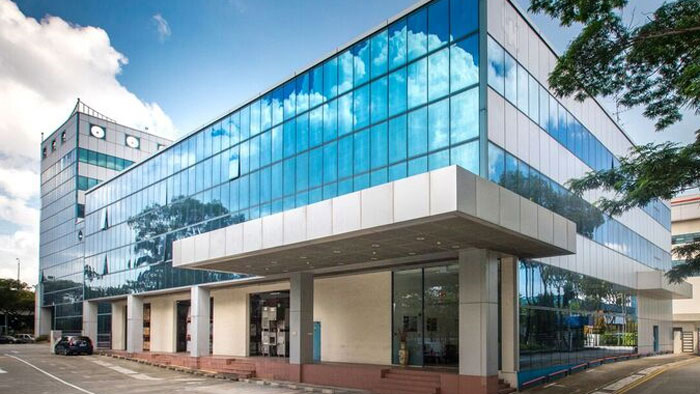
Trust of stakeholders critical to ALMU growth, says Chairman Ho Leng Woon
By Vicky Villena-Denton
Merriam-Webster defines success as “the attainment of wealth, favour, or eminence.” This definition doesn’t sit quite right with me. Increasingly, it seems we judge success in life on material wealth, or perhaps fame. F+L Magazine recently met with Dr. Ho Leng Woon, the new Asian Lubricant Manufacturers Union (ALMU) Council chairman. It was a breath of fresh air speaking with Ho, a man whom, despite many noteworthy achievements in business and community service over the past four decades, judges success in life, mainly, by how much he can contribute to society.
Ho recently accepted the position as ALMU’s first Council chairman, alongside the appointment of the preliminary council, for an initial two years. We met recently to discuss his vision for ALMU, and what motivates him to continue to be involved in the lubricant industry at almost 70 years of age.* Ho says he accepted the role so as to “give back” to the industry and as a service to the international community.
Charity work is not something that is foreign to Ho. Throughout the past 40 years, he has spent considerable time engaging in community service and various charitable organisations in Singapore, including serving as a board member or vice chairman of three high schools and college and as president of St. John Brigade. He also served as Honorary Consul of the Republic of Djibouti in Singapore.
Ho became involved in the oil industry after joining AP Oil International Ltd in 1981, then known as Huan Chew Oil Trading Pte Ltd, following five years working for the government. Born in China, he moved with his family to Singapore in 1959, at age 11. He graduated with a B. A. (1st Class Honours) degree from Nanyang University in Singapore, and furthered his study in the UK as a government scholar, where he received his Ph.D. in Hydrology from the University of Hull.
Ho is currently chairman of AP Oil, originally set up as an oil trading company by his wife in 1975. Almost immediately after joining AP Oil, the affable and hard-working Dr. Ho looked to transition the company towards manufacturing, and established the first ‘home grown’ Singaporean lubricant blending plant in 1981. This was a courageous business venture, pitting AP Oil up against the might of international oil majors in Singapore.
At the outset, AP Oil produced automotive products, machine oils and hydraulic oils, with a small capacity of “only a couple of thousand metric tonnes per year.” Ho says the biggest challenge at the time was the limited size of the Singapore market, and his first attempt to expand outside of Singapore was to neighbouring Malaysia. Despite 10-15% growth rates in the first five years, Ho says it wasn’t until he entered the sizeable Indonesian market that sales began to snowball – “10 containers per month, then 20, 30, and finally 250 containers.”
A testament to Ho’s strong work ethic, AP Oil now operates five lubricant and specialty chemical blending plants, has customers in 21 countries, and a total capacity of 60,000 tonnes per year In 2001, AP Oil became the first Singaporean lubricant company to be publicly listed on the main board, a move he says was more about increasing the company’s profile and minimising personal risk, rather than generating funds.
Until 2015, Ho was chairman and managing director of AP Oil, at which point he relinquished the CEO responsibility to his son Chee Hon Ho, a lawyer by profession. At a time when many others might be thinking about retirement and starting to enjoy “the good life,” Ho has used his new-found freedom to set up three companies in China within the last three years. He retains control of AP Oil’s overseas operations in China and Vietnam.
Ho sees China as a far easier proposition than Europe. Double the population, one rule. While the company has engaged in business in China since 1976, however, the position has now shifted from buying to selling to the world’s most populous nation and second largest economy.
Ho intends to work on the China market for the next 10 years. However, alongside his efforts to grow AP Oil, he also possesses a desire to “passionately do something beneficial to the people there.” ALMU couldn’t ask for a more qualified person to head up the fledgling organization for its preliminary two-year term.
A regional body representing the interests of Asia’s lubricants industry is long overdue, says Ho. Several lubricant associations exist in individual countries; however, no organization represents the combined interests of the region like ILMA does in North America or UEIL in Europe. ALMU has a very important role to play in this region, says Ho. Asia enjoys more than 40% of global lubricant sales, and still has considerable opportunities for growth.
Despite extensive business experience, Ho’s charisma and ethical standards are arguably equally important in growing ALMU. While the association’s vision is to be the ‘voice of Asia,’ Ho believes gaining the trust of industry stakeholders is most critical to its success. Without the trust of suppliers, government authorities, industry players, supply chain and even customers, we will not be able to gain traction and grow, he says.
ALMU was officially launched on March 6, 2018. Ho says his immediate focus is to “build our muscle by getting as many members as possible.” Short, medium and longterm planning is already underway, though central to the development of those plans is feedback from members and industry stakeholders on what support they require — to enable the organisation to target its resources most effectively and tackle key issues. Ho believes the single most important deliverable for the new association is to bring value to its members, whether in specific business areas or technologically.

Through his 37 years of work experience in the oil industry, cooperation to achieve “win-win” benefits has been a key organizational value of AP Oil. Under Ho, ALMU aims to foster bonafide cooperation within the lubricants industry. Healthy competition is important in moving everybody forward, however Ho attests that players need to cooperate on common issues to make life “better for everyone.” Competitiveness can get in the way of coming together as a group, something the ALMU will seemingly try to overcome.
During our discussion, Ho highlighted two key issues that face the Asian lubricants industry today — that of substandard and fake oils. These issues are prevalent in many developing nations throughout the region. Poor oil quality is not only potentially damaging to machinery, it also has detrimental implications for the reputation of the industry as a whole. ALMU will have to find ways to help solve these two problems, he says.
However, he suggests the organisation will stop short of an onsite inspection program similar to ILMA in North America. “We are not the police. We are not the regulator,” he says. ALMU will look to leverage its influence with local governments in the creation of regulations or standards.
Education will be a major thrust in ALMU’s approach in this space. This could include education pertaining to oil purchasing decisions, as well as ethically — encouraging companies to comply with standards “for the good of business and society.” The existing ALMU ethics policy already necessitates that all ALMU members adhere to ethical practices and basic minimum standards.
Aside from these two substantial issues, Ho contests that problems in the lubricants industry in Europe and North America are consistent with key challenges in Asia. We look forward to following Ho’s progress with confidence as he leads the ALMU Council in tackling multiple challenges ahead.
“Together, we can write a good first chapter of the history of ALMU,” he says.
*The author is a director of the Asian Lubricant Manufacturers Union.







